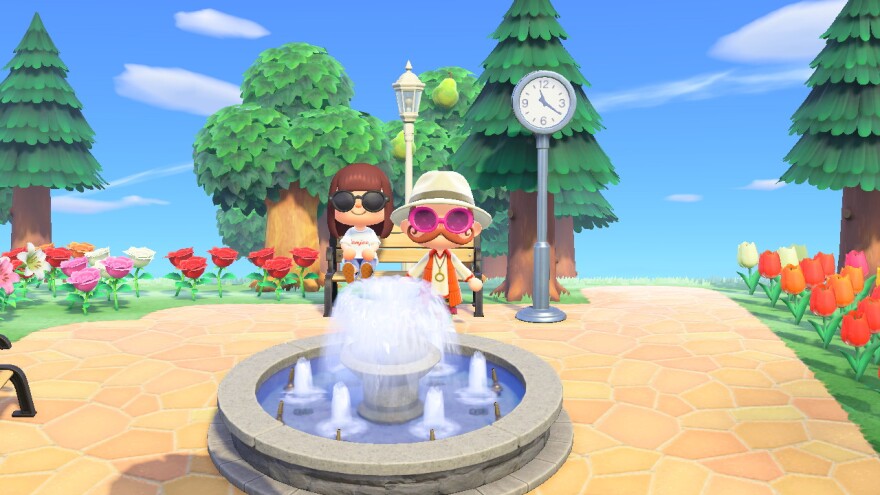Between a global pandemic, the economic downturn and civil unrest across the country, Americans are facing high levels of stress and uncertainty, and many are turning to video games for relief.
This reporter happens to be one of them. But can these virtual experiences help in the real world?
Anne Marie Porter knows a thing or two about stress. She's got a Ph.D. in health psychology from the University of North Carolina at Charlotte.
"Chronic stressors are really the one you have to worry about, and these are stressors occurring over months at a time," Porter said. "So I would consider this pandemic to be a chronic stressor for some people."
She also knows a thing or two about video games. She's been a gamer since she was five.
"I use them all the time, just to kind of relax, get that sense of confidence back at the end of the day and also kind of just to detach from all those worries," she said.
As a researcher, Porter's looking at how video games affect health, primarily stress. For a study published last year, she monitored stress levels in people while they played video games, things like heart rate, blood pressure and emotional responses. She had one group play a stressful game, "Mortal Kombat," and another play a relatively stress-free game, "Tetris."
"And then I purposely stressed people out when they were playing them," she explained. "I had them play on really difficult settings to get them frustrated and I told them that they were going to be judged, like we were actually tallying how many points they got or how many matches they won."
She found that when they added in that judging component, players of both games reported increased anxiety.
Porter said this finding suggests that when facing a difficult task, it's less stressful when you look at it as a challenge to overcome rather than worrying about other people judging you or keeping score.
When you just focus on the challenge, she said, "Video games are able to give you that sense of mastery and control, kind of in your own world. So not only do you relax but you get that feeling of 'Oh, I can do this. I can overcome this challenge. I can build my skills, I can improve myself.' You get that feeling of control back in your life, in a really positive way."

With a pandemic, civil unrest and an upcoming election, there are a lot of things outside of our control.
I decided to try out a game that's very popular right now: "Animal Crossing: New Horizons."
It's an escapist fantasy game where players live on an island and design it however they want. People can craft items, plant trees, and even make friends with cute animal villagers. There are no enemies to fight and no levels to complete.
The game came out in late March, as the pandemic ramped up across the country. In the first 12 days alone, it sold nearly 12 million copies.
One of the game's big draws is its social aspect. By visiting other islands, people can stay in touch with real-life friends without spreading COVID-19.
So, I took a trip to La Tulipe, the island home of my friend and fellow reporter, Maggie Mullen in Laramie, Wyo.
Mullen is not a gamer. But she heard about "Animal Crossing" and bought a Nintendo Switch Lite console just so she could play it.

"I think, obviously, there's a part of it that feels like an escape. But I also feel like it's actively soothing," Mullen said.
Gaming has had a bad rap in recent years, from reports of racism and sexism among prevalent gaming communities to the rise of gaming addiction. But Porter said we still don't know the full impact of video games – both negative and positive.
"And when we have situations like this pandemic, I mean, it's exploded. It's such a big deal, so I definitely think it's not going away anytime soon," she said. "So it's definitely important to keep studying it."
With the pandemic luring new gamers, she added, this information will be valuable to public health officials moving forward.
This story was produced by the Mountain West News Bureau, a collaboration between Wyoming Public Media, Boise State Public Radio in Idaho, KUNR in Nevada, the O'Connor Center for the Rocky Mountain West in Montana, KUNC in Colorado, KUNM in New Mexico, with support from affiliate stations across the region. Funding for the Mountain West News Bureau is provided in part by the Corporation for Public Broadcasting.







